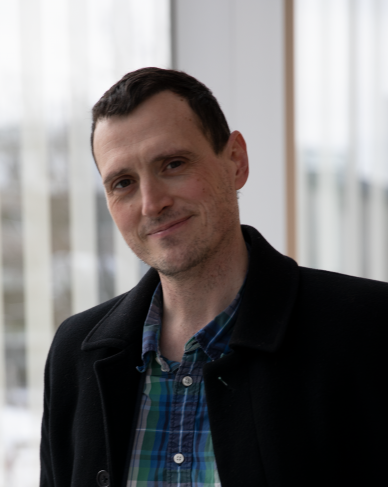Seminar - Dr. Jason Hein

Associate Professor, Department of Chemistry, University of British Columbia (Canada)
Tuesday, September 14th
6:30 - 8:00 pm
via Zoom
Zoom meeting link will be sent to registered participants by email.
6:30 pm - Networking
7:00 pm - Seminar & Questions
Seminar Flyer
New Tools and Technology to Accelerate Process Chemical Research and Discovery
The constant pressure to accelerate the chemical research and discovery enterprise forces us to continually challenge and optimize our workflows. This exercise is facilitated through new enabling technology, which often is born out of early-stage prototypes from academic laboratories. The journey from first proof of concept to deployed technology is a convoluted and challenging process, and requires a diverse interdisciplinary team and excellent communication to ensure the goals from all stakeholders are being addressed. Evolving a system from the academic inception to a deployable technology that meets the needs of industrial research can prove to be a research project in itself.
This presentation will highlight several case studies focused on transferring new automation hardware in service of autonomous laboratory experimentation. These new tools are the product of the fusion of machine learning (ML) with advanced robotics and online analytics, which has given rise to the “self-driving” laboratory; a hybrid hardware/software system capable of executing iterative experiments while learning on the fly and deciding what to do next. These tools present enormous potential and may radically alter how scientific research and discovery is executed by dramatically shortening both the time and burden needed to explore new research challenges.
Biography: Dr. Jason Hein is an Associate Professor in the Department of Chemistry at the University of British Columbia, Canada. Jason Hein received his B.Sc. in Biochemistry in 2000 and Ph.D. in asymmetric reaction methodology in 2005 from the University of Manitoba (NSERC PGS-A/B, Prof. Philip G. Hultin). In 2006, he became an NSERC postdoctoral research fellow with Prof. K. Barry Sharpless and Prof. Valery V. Fokin at the Scripps Research Institute in La Jolla, CA. In 2010, he became a senior research associate with Prof. Donna G. Blackmond at the Scripps Research Institute. He began his independent career at the University of California, Merced in 2011, employing in-situ kinetic reaction analysis to rapidly profile and study complex networks of reactions. In 2015, he moved to the University of British Columbia to continue the development of automated reaction analytical technology to serve mechanistic organic chemistry. His research has resulted in a collection of prototype modular robotic tools and integrated analytical hardware which create the first broadly applicable automated reaction profiling toolkit geared toward enabling autonomous research and discovery. He was the co-lead of Project ADA; the world's first autonomous discovery platform for thin film materials, supported by Natural Resources Canada, co-PI of the MADNESS team supported by the DARPA Accelerated Molecular Discovery Program and an Associate Director of the Acceleration Consortium spearheaded by the University of Toronto.